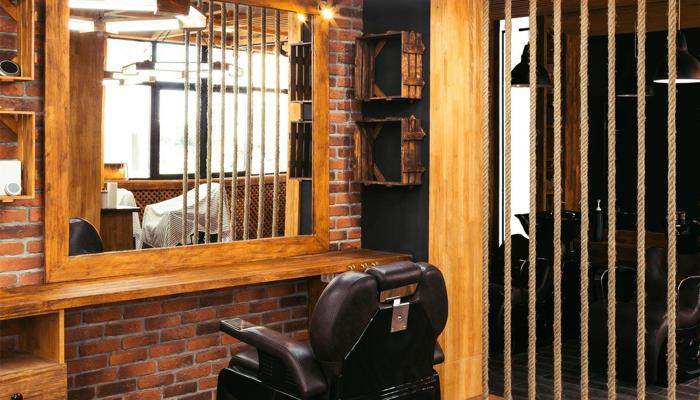Unlock the Secrets to Healthy Hair with Expert Tips! Dive into easy routines for vibrant locks
Our hair, yaar, it's like our crowning glory, isn't it? Whether you've got long, flowing locks, a stylish bob,
or a cool buzz cut, healthy hair makes you feel good and confident.
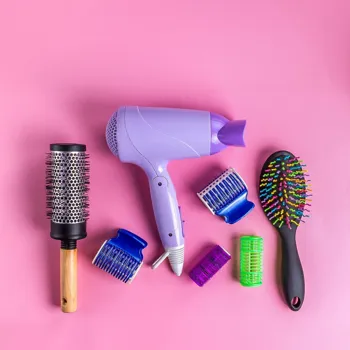
But let's be honest, maintaining healthy hair in our dusty, polluted Indian environment, with our crazy schedules and love for experimenting with different styles, can be quite a challenge.
That's why we've reached out to some of India's top hair stylists to get their expert tips on how to keep your mane looking its best. Forget those complicated routines you see online; these are easy and effective tips that anyone can incorporate into their daily life.
So, get ready to learn the secrets to strong, shiny, and healthy hair!
Wash hair correctly: 2-3 times/week, gentle shampoo, conditioner, deep condition weekly
Washing your hair seems simple, right? But trust us, there's a right way and a wrong way to do it. Over-washing can strip your hair of its natural oils, leaving it dry and brittle. Top stylists recommend washing your hair only when it's actually dirty or greasy.
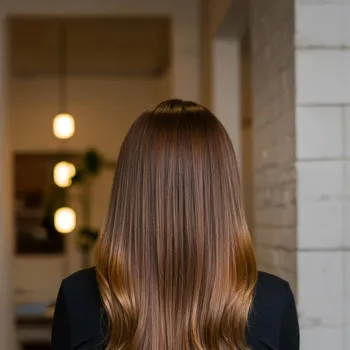
For most people, that's about two to three times a week. If you have oily hair, you might need to wash it more often, but try to avoid doing it every single day. When you do wash, make sure to use a mild, sulfate-free shampoo. Sulfates are harsh chemicals that can damage your hair.
Look for shampoos specifically designed for your hair type, whether it's dry, oily, or color-treated. Apply shampoo to your scalp and gently massage it in. Avoid scrubbing too hard, as this can irritate your scalp. Rinse thoroughly with lukewarm water.
Hot water can also strip your hair of its natural oils. After shampooing, always use a conditioner. Conditioner helps to detangle your hair, add moisture, and protect it from damage. Apply it to the ends of your hair, avoiding the scalp.
Leave it on for a few minutes, as directed on the bottle, and then rinse thoroughly. For extra hydration, consider using a deep conditioner once a week. You can either buy a ready-made deep conditioner or make your own at home using ingredients like coconut oil, honey, and yogurt.
Apply the deep conditioner to your hair, cover it with a shower cap, and leave it on for about 30 minutes before rinsing. Remember, washing your hair the right way is the first step to achieving healthy and beautiful locks.
Proper hair drying techniques for healthy, shiny hair
The way you dry your hair is just as important as how you wash it. Rubbing your hair vigorously with a towel can cause breakage and frizz. Instead, gently pat your hair dry with a soft towel. You can also use a microfiber towel, which is more absorbent and less likely to damage your hair.
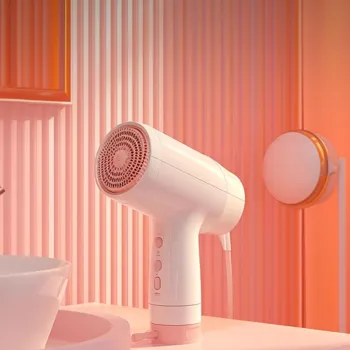
Another great option is to let your hair air dry as much as possible. If you must use a hair dryer, use it on a low heat setting and keep it moving. Directing hot air at one spot for too long can damage your hair. Before blow-drying, apply a heat protectant spray to your hair.
This will help to shield it from the heat and prevent damage. When blow-drying, use a nozzle attachment to concentrate the airflow and prevent frizz. Avoid over-drying your hair. Leave it slightly damp to prevent it from becoming dry and brittle. Finally, remember that patience is key.
Drying your hair gently may take a little longer, but it will make a big difference in the long run. Treat your hair with care, and it will reward you with health and shine. Many stylists suggests that letting your hair air dry is best for its health and vitality.
Doing this regularly will significantly reduce damage to hair and will give much healthier look.
Oiling hair promotes growth, circulation; choose suitable oil types for best results
Oiling your hair is an age-old Indian tradition that's still relevant today. Hair oil provides essential nutrients to the scalp and hair follicles, promoting healthy hair growth and preventing dryness.

Regular oiling can also improve blood circulation to the scalp, which further stimulates hair growth. Choose an oil that suits your hair type. Coconut oil is a great all-around option for most hair types.
Almond oil is good for dry and damaged hair, while amla oil is known for its hair-strengthening properties. Warm the oil slightly before applying it to your scalp and hair. Gently massage the oil into your scalp for a few minutes to stimulate blood circulation.
Then, apply the oil to the rest of your hair, focusing on the ends. Leave the oil on for at least 30 minutes, or even overnight for a deeper treatment. Wash your hair as usual to remove the oil. Oiling your hair once or twice a week can make a noticeable difference in its health and appearance.
For best results, use a high-quality, natural oil without any added chemicals. Consider adding essential oils like rosemary or lavender to your hair oil for added benefits. These oils can help to improve hair growth and reduce hair fall.
Another tip from old stylists is to do a warm towel wrap after applying oil. This will help the oil to penetrate your hair shafts better.
Balanced diet and hydration crucial for healthy hair growth
What you eat and drink has a direct impact on the health of your hair. A balanced diet rich in vitamins, minerals, and protein is essential for strong and healthy hair. Make sure to include plenty of fruits, vegetables, and whole grains in your diet.
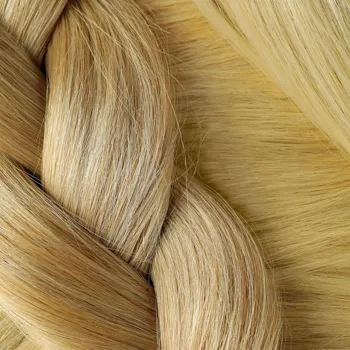
These foods provide essential nutrients that support hair growth and prevent hair loss. Protein is especially important for hair health, as hair is primarily made of protein. Include sources of protein like lentils, beans, and nuts in your diet.
Iron deficiency can also lead to hair loss, so make sure to get enough iron-rich foods like spinach and dates. In addition to eating a healthy diet, staying hydrated is crucial for hair health.
Drink plenty of water throughout the day to keep your hair hydrated and prevent it from becoming dry and brittle. Water helps to transport nutrients to the scalp and hair follicles, promoting healthy hair growth.
Avoid sugary drinks and excessive caffeine, as these can dehydrate your body and negatively affect your hair. Consider taking supplements like biotin, zinc, and vitamin D if you're not getting enough of these nutrients from your diet.
However, it's always best to consult with a doctor or nutritionist before taking any supplements. Remember, healthy hair starts from within. Nourish your body with a balanced diet and stay hydrated to keep your hair looking its best.
Excessive hair fall: causes, solutions, seek professional help
Hair fall can be a stressful experience, but it's important to remember that losing some hair every day is normal. However, if you're experiencing excessive hair fall, it's important to take action. First, identify the possible causes of your hair fall.
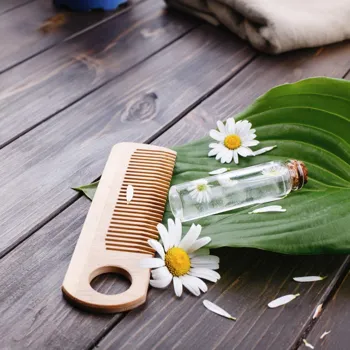
Stress, hormonal imbalances, nutritional deficiencies, and certain medical conditions can all contribute to hair fall. If you suspect that your hair fall is caused by a medical condition, consult with a doctor. Reduce stress levels through techniques like yoga, meditation, and deep breathing.
Stress can disrupt the hair growth cycle and lead to hair fall. Make sure you're getting enough sleep, as sleep deprivation can also contribute to stress. Use gentle hair care products and avoid harsh chemicals that can damage your hair.
Avoid tight hairstyles that can pull on your hair and cause breakage. Consider using hair growth treatments like minoxidil or finasteride, but only under the guidance of a doctor. These medications can have side effects and may not be suitable for everyone.
Consult with a dermatologist to determine the best treatment options for your hair fall. Remember, addressing hair fall requires a multi-faceted approach. Identify the underlying causes, adopt healthy habits, and seek professional help when needed.
With patience and persistence, you can manage hair fall and promote healthy hair growth.
Regular trims maintain healthy hair, remove split ends, & aid growth
Getting regular trims is essential for maintaining healthy hair. Even if you're trying to grow your hair long, trimming off split ends is crucial. Split ends can travel up the hair shaft and cause further damage. This will actually stunt hair growth in the long run.
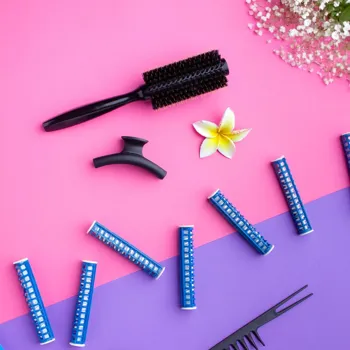
Aim to get a trim every six to eight weeks to remove split ends and keep your hair looking its best. Trimming your hair also helps to maintain its shape and prevent it from becoming weighed down. If you have layers, regular trims will keep them looking fresh and defined.
Don't be afraid to ask your stylist for a light trim if you're trying to grow your hair long. Even a small trim can make a big difference in the overall health and appearance of your hair. When getting a trim, make sure to communicate your preferences to your stylist.
Let them know how much hair you want to trim off and what style you're trying to achieve. Regular trims are a simple but effective way to keep your hair healthy, strong, and beautiful. It's an investment in your hair's long-term health.
So, book your next appointment today and give your hair the love and care it deserves. With these tips from top stylists, you can achieve the healthy and gorgeous hair you've always dreamed of. Remember, consistency is key.
Incorporate these tips into your daily routine, and you'll start to see a noticeable difference in the health and appearance of your hair.
